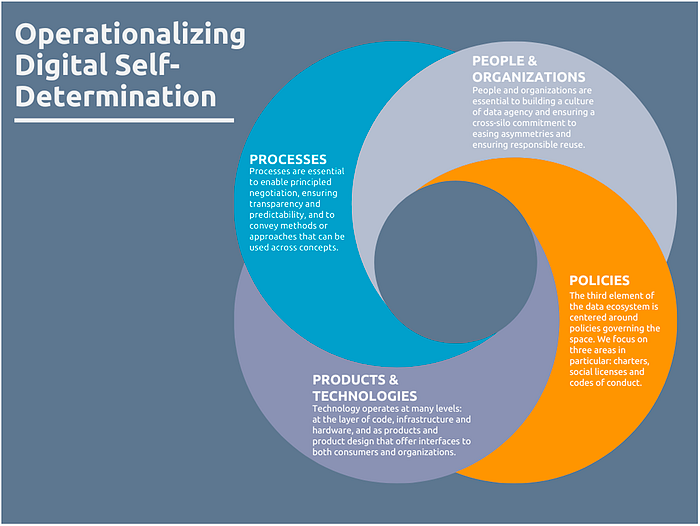Blog by Stefaan G. Verhulst: “The world is undergoing a rapid process of datafication, providing immense potential for addressing various challenges in society and the environment through responsible data reuse. However, datafication also results in imbalances, asymmetries, and silos that hinder the full realization of this potential and pose significant public policy challenges. In a recent paper, I suggest a key way to address these asymmetries–through a process of operationalizing digital self-determination. The paper, published open access in the journal Data and Policy (Cambridge University Press), is built around four key themes:…
Operationalizing DSD requires translating theoretical concepts into practical implementation. The paper proposes a four-pronged framework that covers processes, people and organizations, policies, products and technologies:
- Processes include citizen engagement programs, public deliberations, and participatory impact assessments, can inform responsible data use.
- People and organizations, including data stewards and intermediaries, play a vital role in fostering a culture of data agency and responsible data reuse.
- Effective governance and policies, such as charters, social licenses, and codes of conduct, are key for implementing DSD.
- Finally, technological tools and products need to focus on trusted data spaces, data portability, privacy-enhancing technologies, transparency, consent management, algorithmic accountability, and ethical AI….(More)” See also: International Network on Digital Self Determination.

